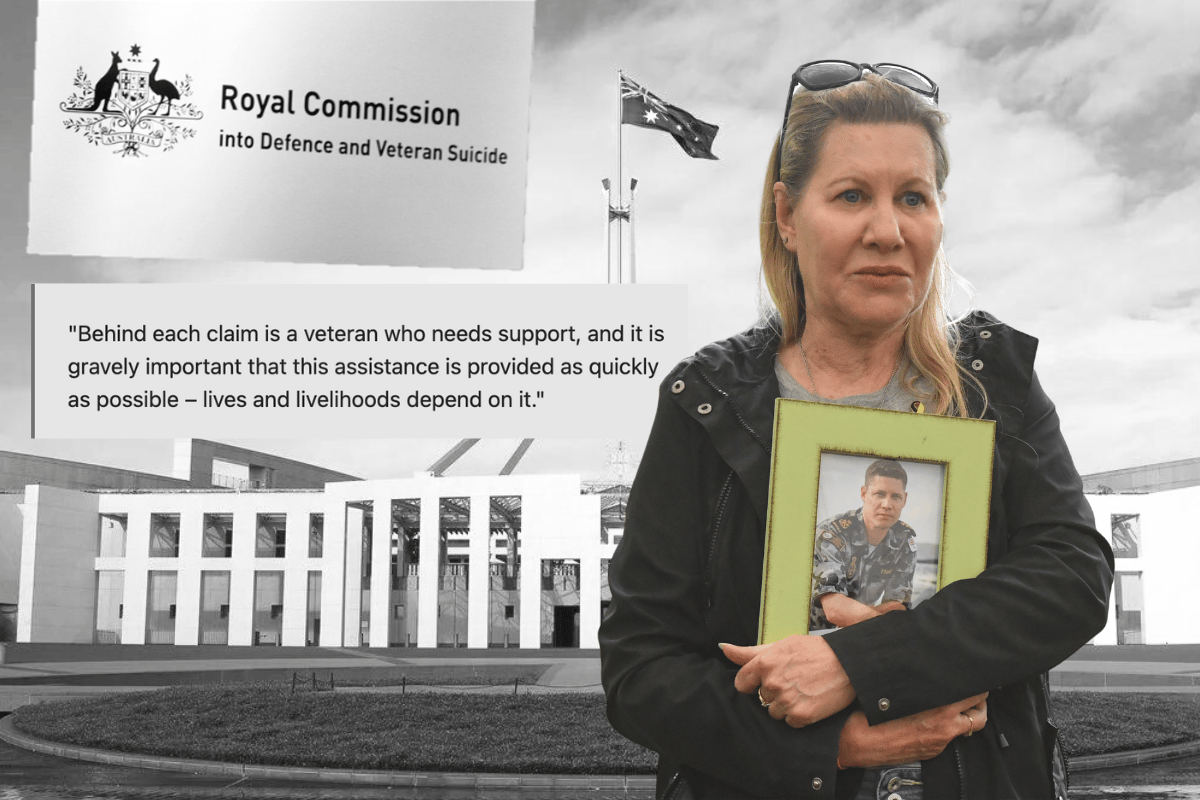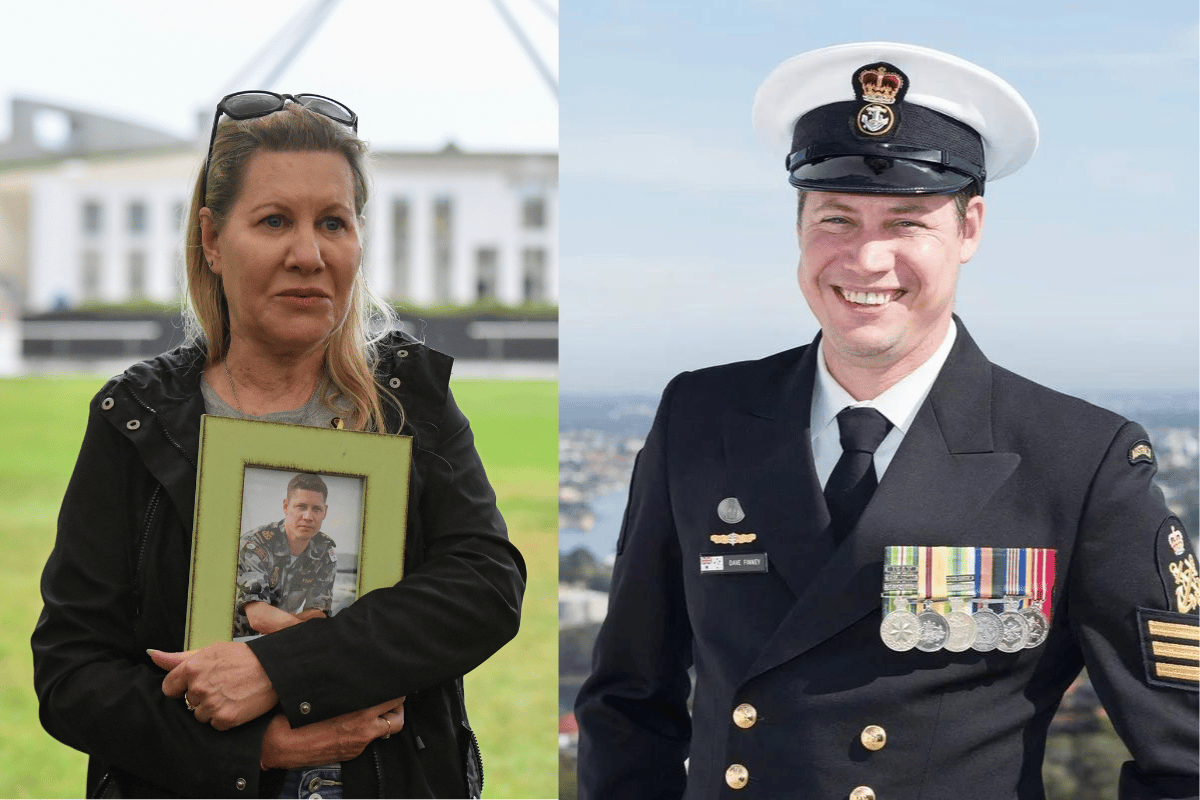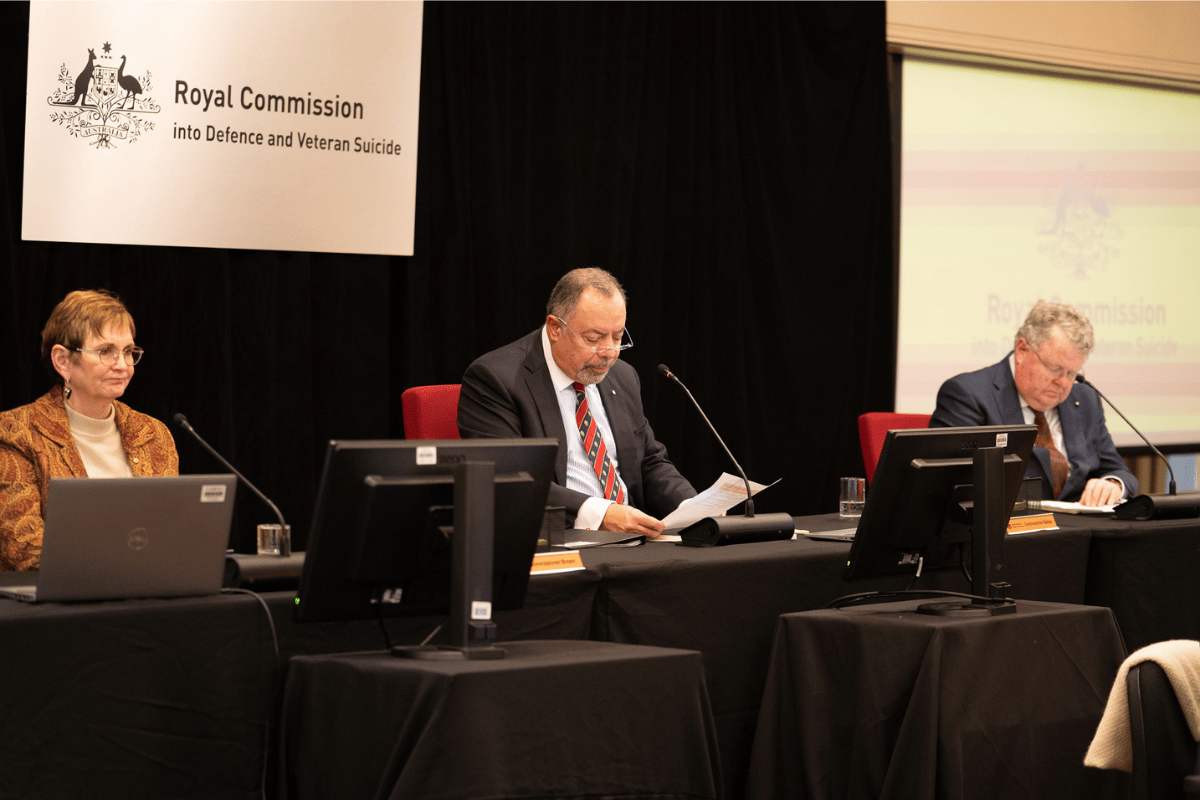
More Australian veterans have taken their own lives than have been killed in active duty since our troops were first deployed to Afghanistan in 2001. It's a sobering statistic that has stuck in the minds of many.
This week the Royal Commission into Defence and Veteran Suicide released its interim report after seeing more than 1,900 submissions and 194 witnesses. The findings and recommendations handed down paint a complex picture of the Australian Defence Force (ADF).
For years, it looked like this Royal Commission wouldn't take place. It's thanks to significant lobbying efforts by the veteran community that the government established the Royal Commission in 2021.
And one of the most high-profile campaigners for the establishment of the national inquiry was Julie-Ann Finney. Because for her, it was personal. And she knew change was desperately needed.
Julie-Ann's son David enlisted in the Australian Royal Navy at the age of 18, inspired by his father who had spent 25 years in the services. And for 20 years, David was a part of the Navy.
"He was a very, very proud sailor," Julie-Ann told Mamamia last year. "He loved his career - the travel, the friendships, the family, the challenges, the accolades, really everything about his career was good until he broke."
Around 2017, there were signs that David was struggling with post-traumatic stress disorder. He had been to Timor and Iraq during times of conflict, seeing the worst of humanity.


